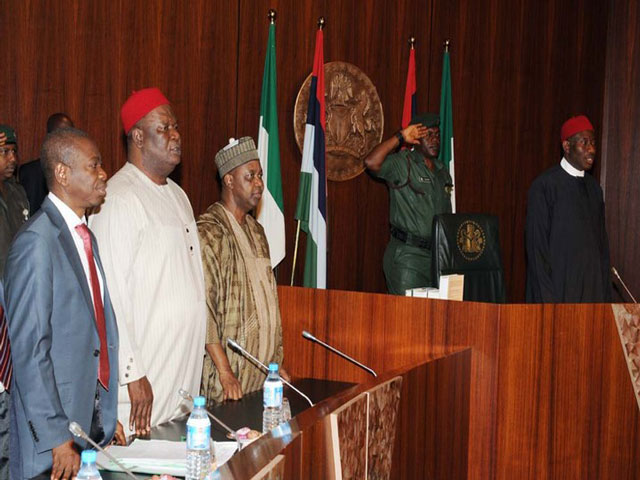The Federal Government’s drive towards industrialization took another leap when the ministry of trade and investment proposed plans for institutionalization of Automotive Industrial Policy Development Plan in the country.
This came to the fore when the Federal Executive Council (FEC) adopted the plans as part of efforts to discourage the rampant importation of second-hand vehicles, popularly called “Tokunbo”.
Minister of Trade and Investment, Olusegun Aganga alongside the Minister of Information Labaran Maku told news correspondents at State House after the FEC meeting presided over by President Goodluck Jonathan.
Aganga has however said that the policy will ensure the reduction of importation of the amount that can be locally manufactured creating over 700,000 jobs over time.
Aganga assured that the pitfall in similar past policies including the non-implementation of policies, lack of infrastructure, and inappropriate tariff regime, among others have been addressed under the new policy framework.
“A transformed automotive industry will realise its potential as a major driver of economic growth and diversification, job creation, local value addition, and technology acquisition”, he assured.
He said: “These recommendation were adopted at various fora, conferences and consultations with stakeholders, including some original equipment manufacturers (OEM).
“Council also approved that the government should direct that all vehicle purchased by the government should be from the local assembly plants unless it is specialised and National Automotive Council (NAC) has certified that it is not produced in Nigeria.”
“The Council approved that the approved recommendation should be backed by appropriate legislation to give comfort to investors that there will be no abrupt change in policy,” he added.
He said the Industrial Training Fund (ITF) was working with car-maker, Cena of Brazil, to open automotive training centres while two universities have agreed to start degree programmes in automechanical engineering to provide adequate local manpower for the industry.
Maku noted the presentation to council of a broad policy plan to develop Nigeria automotive industry.
“This plan, which is part of the ministry’s industrial revolution plan that has earlier been approved, is aimed at ensuring increase flow of investments for the development of the automotive in Nigeria.”
Maku also said the government has identified and designated automotive clusters in Lagos/Ogun; Kaduna/Kano; and Anambra/Enugu states as the locations for the manufacturing of the new vehicle to enable them to share resources and reduce cost of investments.
The expected multiplier effect he said, includes expected revival, expansion and development of the petrochemical and metal/steel sectors, and “facilitate the return of tyre manufacturing industry to profitability to support the sector”.
“Banks will be encouraged to operate vehicle purchase schemes to enable Nigerians purchase cars on easy terms and the FRSC will kick off a new vehicle car registration/tracking system in the next two weeks to check the smuggling of used cars into the country”, he disclosed.
Meanwhile, the FEC has also approved the sum of N41.512 billion contracts for rehabilitation and expansion of the outer Southern Expressway.



Leave a Reply